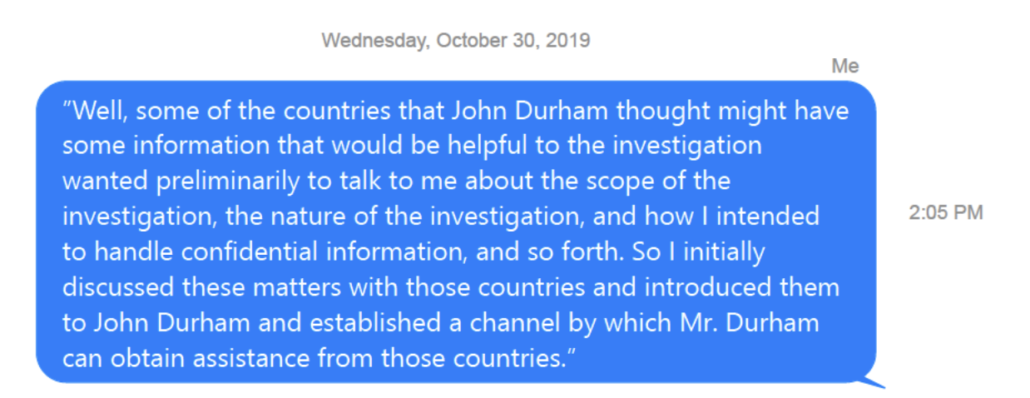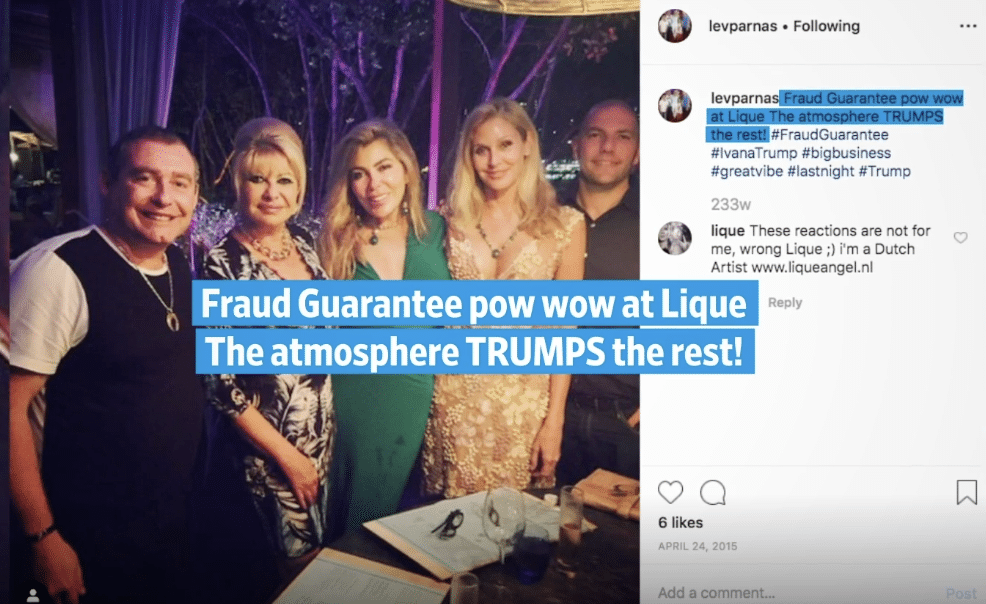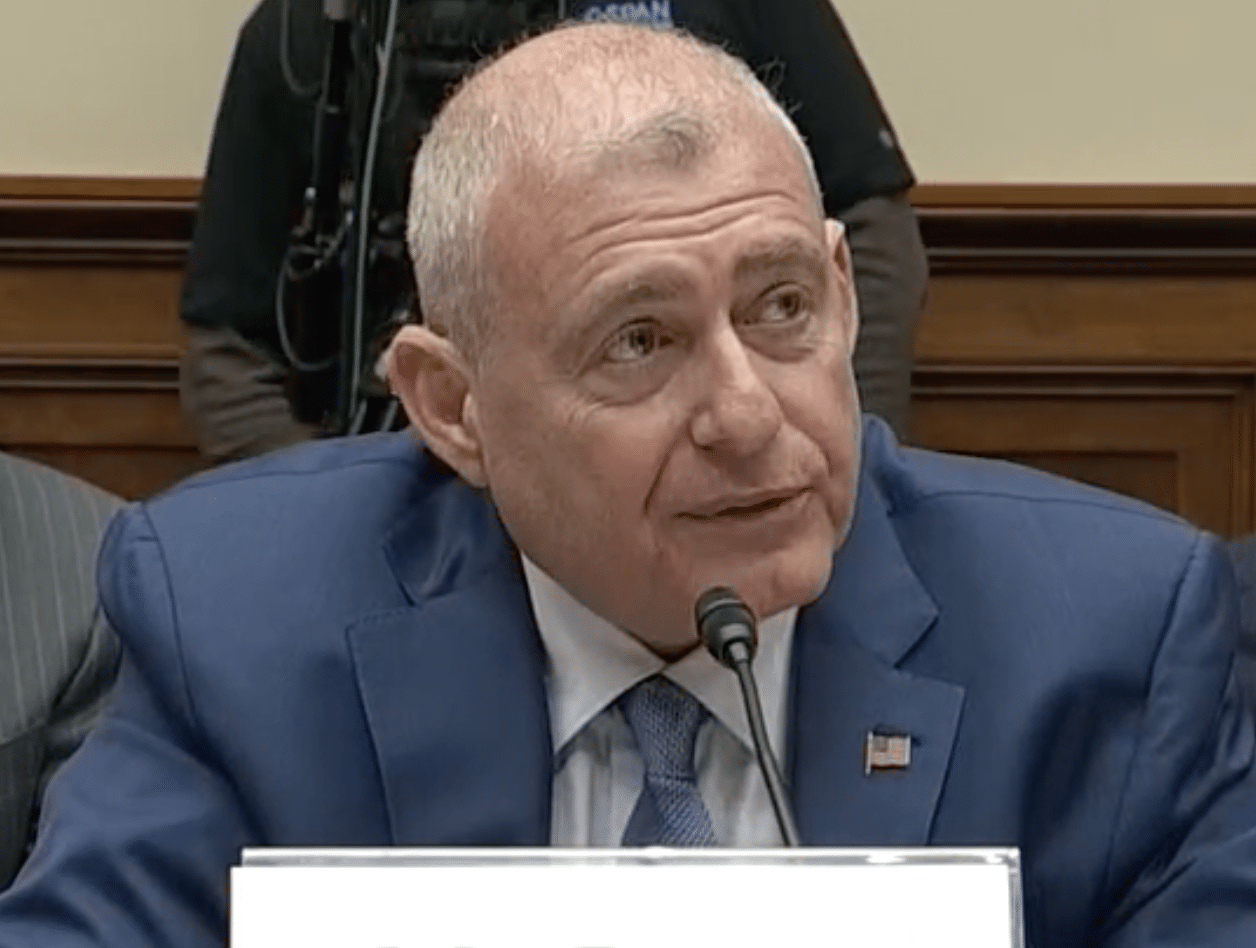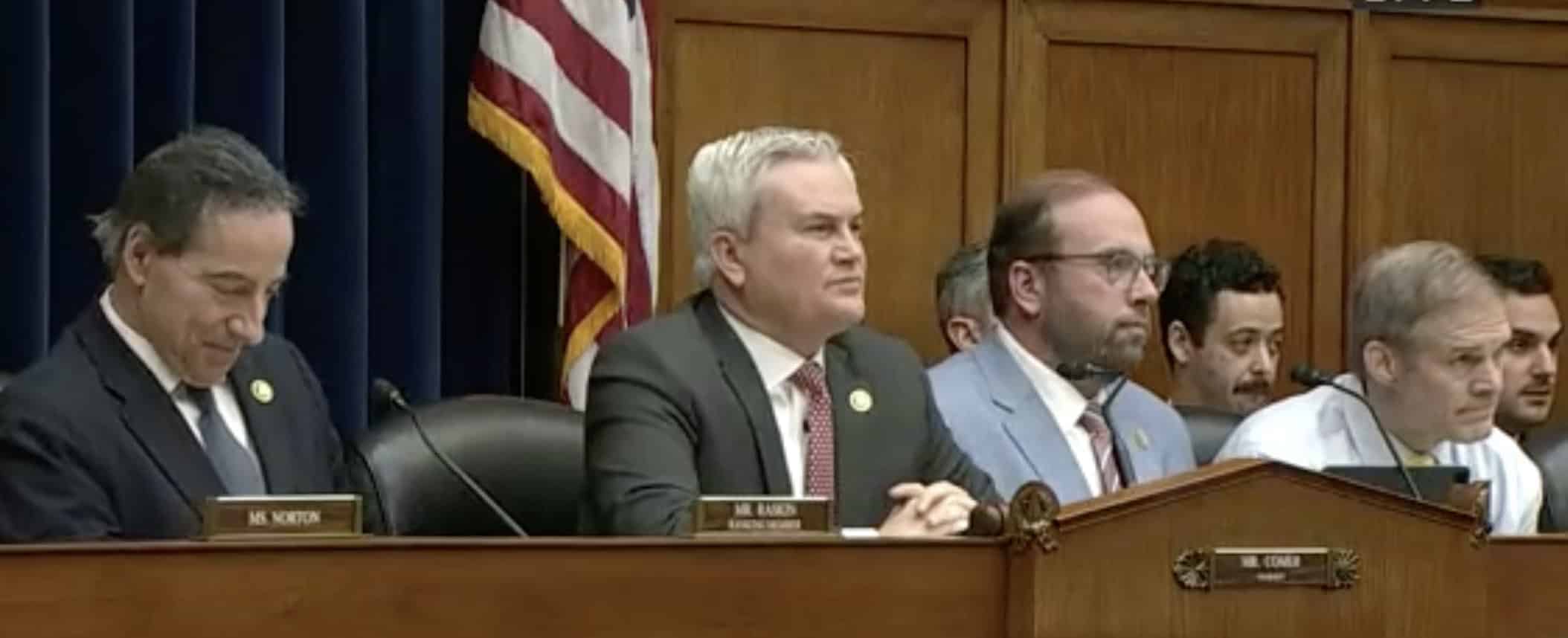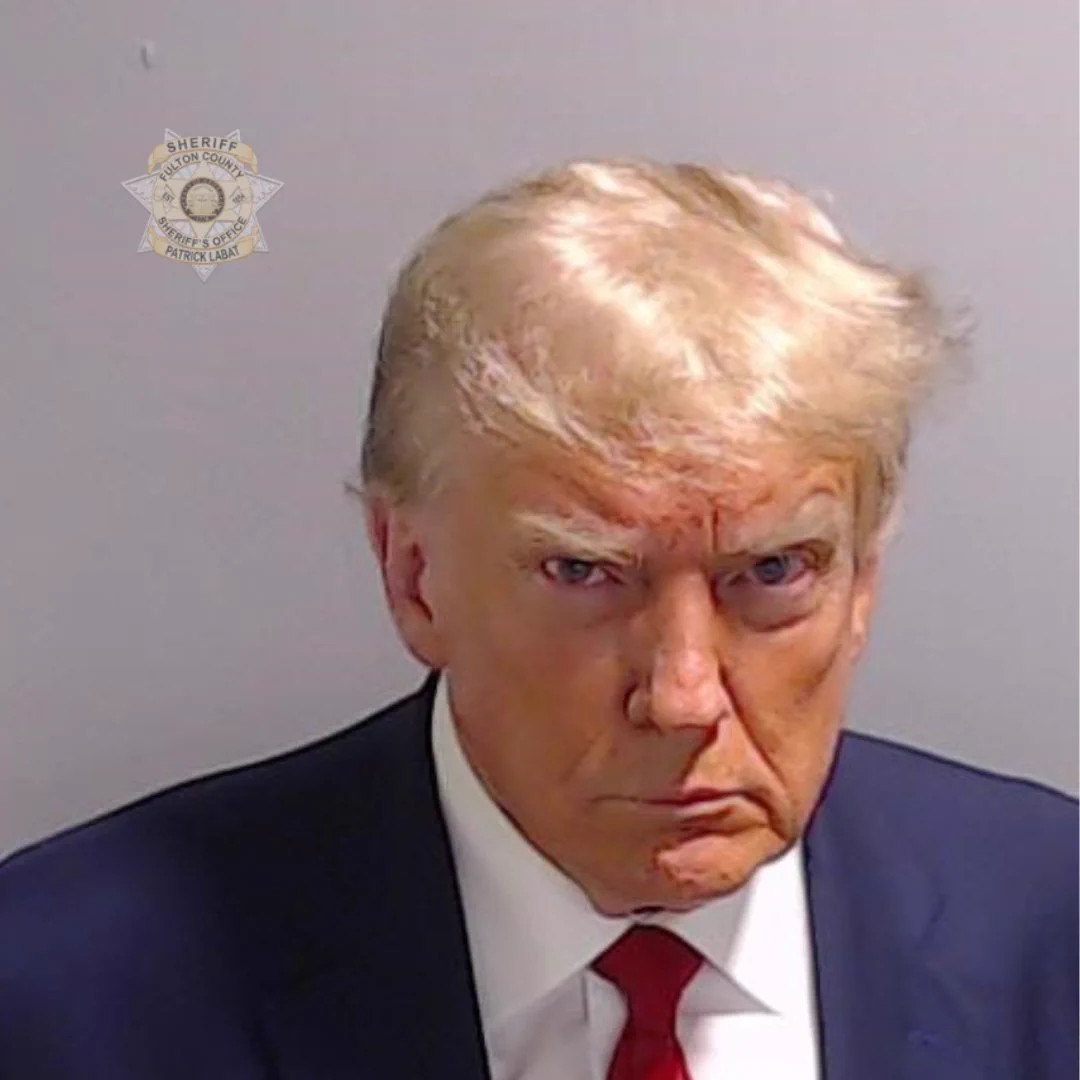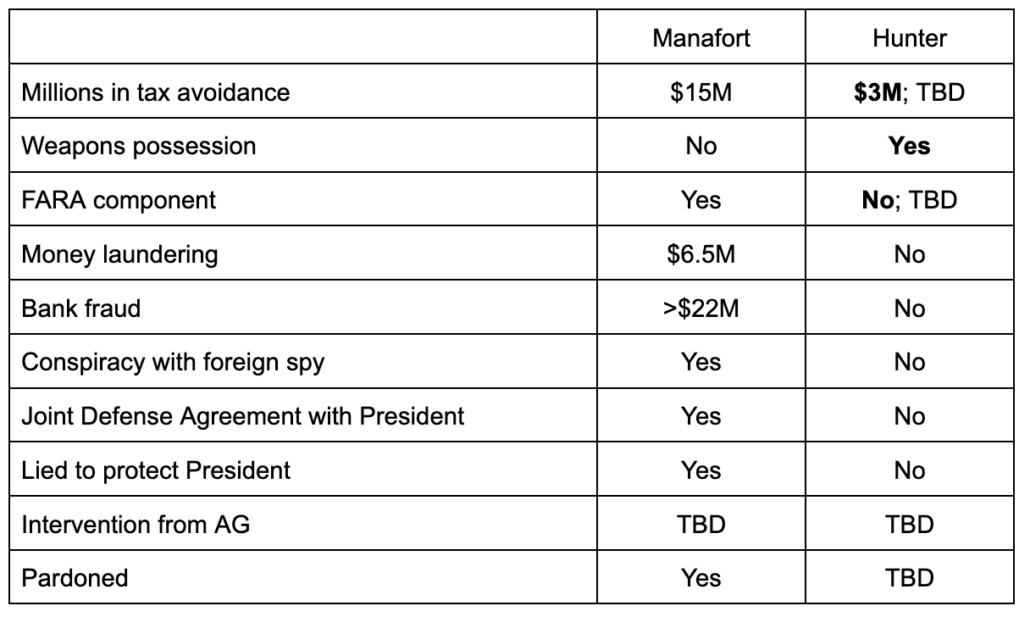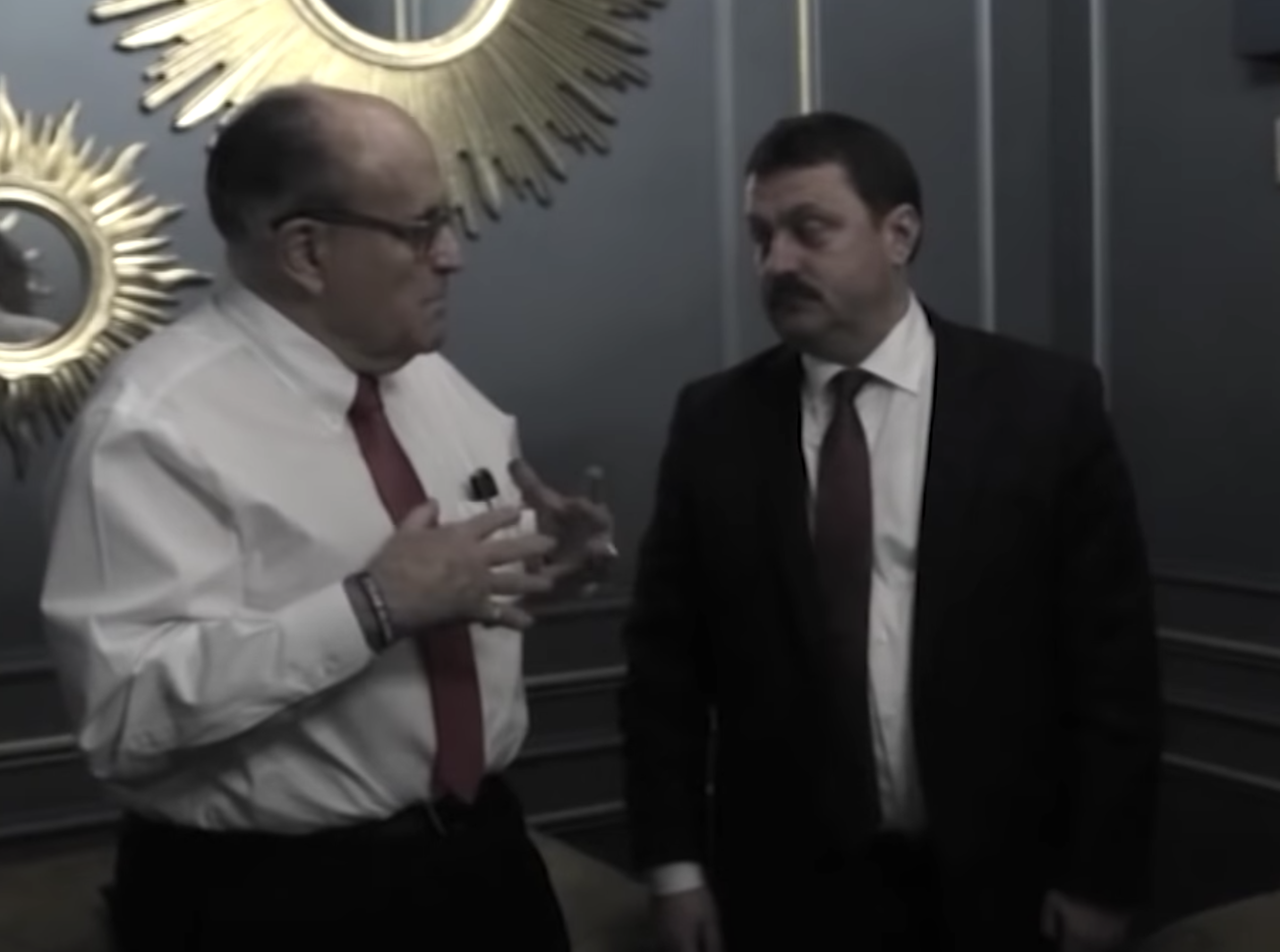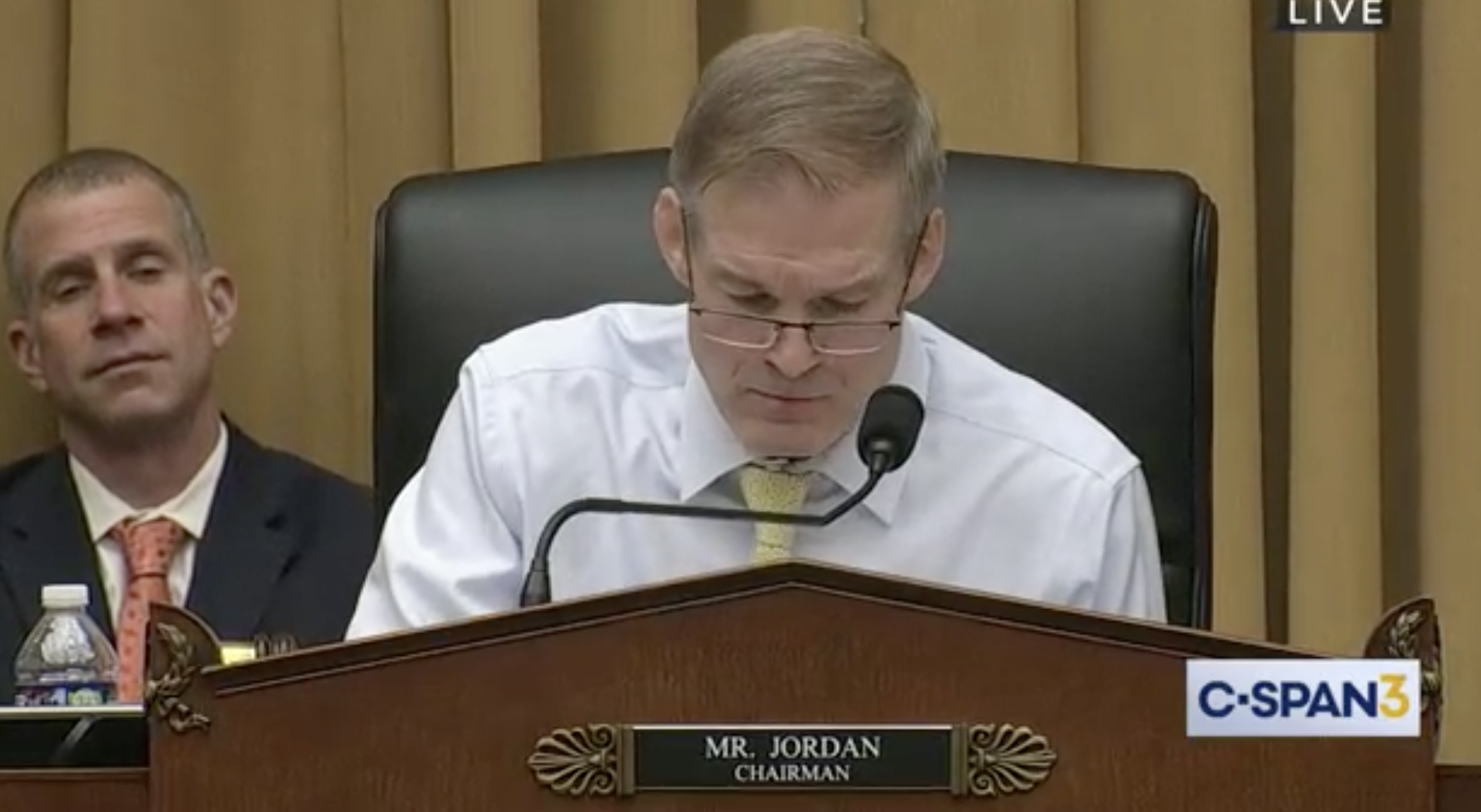Barr Time 1: “Conjuring up criminal conspiracies about political opponents”
June 6 of last year was the official publication date for Bill Barr’s book. In it, he claimed — at least three different times — that under him, DOJ did not investigate Joe Biden’s role in pushing Petro Poroshenko to fire Viktor Shokin. “[T]he facts about this episode were out in the open and didn’t warrant a criminal investigation,” Barr said in one instance.
The day after release of a book making that assertion, on June 7, 2023, Bill Barr went on the record with Margot Cleveland insisting that investigation into an allegation that we now know came from Alexander Smirnov, claiming that Mykola Zlochevsky had bribed Joe Biden, not only hadn’t been shut down in August 2020, but had been sent to Delaware “for further investigation.”
“It’s not true. It wasn’t closed down,” William Barr told The Federalist on Tuesday in response to Democrat Rep. Jamie Raskin’s claim that the former attorney general and his “handpicked prosecutor” had ended an investigation into a confidential human source’s allegation that Joe Biden had agreed to a $5 million bribe. “On the contrary,” Barr stressed, “it was sent to Delaware for further investigation.”
On June 6, Bill Barr claimed his DOJ didn’t investigate Biden’s ties to Burisma because all the facts were out in the open. On June 7, he insisted DOJ had sustained a secret investigation into an allegation that Burisma bribed Joe Biden.
Barr’s book mentions Ukraine almost 70 times. He mentions the Bidens, in an investigative context, over 56 times. Virtually everything he says on the topic conflicts as dramatically with known events as that claim on June 7 did.
It was always clear these claims were an attempt to spin the events, Barr’s CYA about fairly damning events in which he was involved. Given the subsequent disclosures of the the SDNY warrants, claims Lev Parnas’ has made since this book came out, Brady’s testimony about the side channel, and Smirnov’s indictment, I want to look at how Barr describes his involvement in efforts to investigate Joe Biden and his son.
At best, they show that Bill Barr was an easy mark for Russian disinformation.
Barr needed a bribery allegation and an informant fabricated it for him
Here’s how Barr describes the Brady side channel, which we now know resulted in an FBI informant with ties to Russian spies fabricating a claim about Joe Biden that right wingers successfully demanded be used to renege on a plea deal for Hunter Biden during the 2024 election season, a claim that — had Brady done the vetting he and Barr claimed he did — would have been identified as a fabrication in 2020.
With impeachment still pending, Giuliani embarked on yet another round of grandstanding. He went about claiming he had compiled significant evidence relating to the Bidens that he wanted to present to the Justice Department. While anyone is free to present evidence to the DOJ, the fact Giuliani was making such a public display obviously made his motives suspect. It looked to me that Rudy was trying to run the same play against Biden that I thought the Clinton campaign had tried to run against Trump in 2016: giving just enough evidence to law enforcement to have some allegation investigated, then claiming one’s adversary was “being investigated.” This presented a quandary. On the one hand, I wasn’t going to let the department be drawn into Giuliani’s game, and I wasn’t about to allow the work of other prosecutors on other, potentially related matters be tainted by commingling their evidence with whatever Giuliani had pulled together. On the other hand, the department has an obligation to be open to all comers who believe they possess relevant evidence; we could not merely dismiss his information out of hand without looking at it. Yet merely receiving information does not imply the department believes opening an investigation is warranted. My solution to Giuliani’s posturing was to create an intake system for evidence originating in Ukraine—including but not limited to Giuliani’s—that dispelled any suggestion that, by accepting the information, the department was signaling it considered the allegations credible.
I set up a screening process whereby an office outside of Washington—in this case, the US Attorney’s Office in Pittsburgh— would vet the information provided by Giuliani, working with the FBI and intelligence experts on Ukraine. That office, which was run by a trusted US attorney, Scott Brady, who was well known to me and my staff, would not be responsible for deciding whether to open any investigation, just for assessing the credibility of the information. This would be an intermediary step before any information was forwarded to an office responsible for making any investigative determinations. Employing such a “taint team” is a well-established procedure within the department for screening potentially suspect evidence. These precautions were especially apt in the case of Giuliani, whose political passions and previous associations in Ukraine possibly affected his own critical faculties.
At an unrelated press conference in early February 2020, I made clear I was skeptical of information coming out of Ukraine. “We have to be very careful with respect to any information coming from the Ukraine,” I said. “There are a lot of agendas in the Ukraine, a lot of crosscurrents. And we can’t take anything we received from Ukraine at face value.” My usual critics on the Hill and in the media, as always getting the point exactly backward, screamed that I was giving Giuliani special access to the department. Wrong. It was an exercise in caution and an effort to protect other investigations that the DOJ had going on at the time.
While the effort to push the Ukrainians to investigate Biden was foolish, I do not believe it was criminal. Not all censurable conduct is criminal. The current tendency to conflate the foolish with the legally culpable causes more harm than good. Trying to apply the criminal law to diplomatic give-and-take is especially dangerous. A quid pro quo is inherent in almost all diplomacy, and Presidents frequently ask foreign countries to do things that are politically beneficial to the Presidents. A President might, for example, make a large, secret concession to a foreign country in order to expedite release of a hostage or win some other timely agreement the President expects will yield substantial political benefits prior to an election. The fact that the action sought from the foreign government will yield political benefit should not make the request criminal. It may have been in the national interest. Nor should it be criminal because the concession made by a President seems disproportionate or even reckless. Nor should it make a difference that the President was subjectively motivated by the expectation of political benefit.
The fact is that diplomatic transactions frequently involve “mixed motives.” The quo being sought will provide a political benefit and will likely satisfy a legitimate policy purpose of the government. In any particular case, the political motive may loom much larger than the governmental purpose, but as long as the latter is present, it would be hazardous to criminalize diplomacy by attempting to assess the balance of subjective motivations. Of course, if the quo being sought objectively has no governmental purpose at all and is purely a private benefit—say, a payment of cash for private use—then we are in the realm of bribery. But so long as the quo arguably advances a public policy objective, then policing the propriety of diplomatic transactions should be left to the political, not the criminal, realm.
To this extent, I viewed Vice President Biden’s pushing for Shokin’s termination as similar to President Trump’s pushing for an investigation of Biden’s role. The quo sought by Biden—the firing of Shokin—held a potential political benefit for Biden: avoiding the embarrassment of having his son’s company investigated for corruption. It also, ostensibly, had a legitimate public policy purpose: advancing the US anticorruption agenda. Similarly, Trump would benefit politically from an investigation into Shokin’s termination, but bringing transparency to that episode would also arguably advance America’s anticorruption agenda.
Biden supporters would say that, in his case, his policy purpose was overarching and supervened any possible political agenda. Trump supporters would say the same about his aims. My point is that the criminal justice process cannot legitimately be used to investigate politicians’ motivations when those politicians are asking for some rational and lawful policy concession. What Biden was demanding in Ukraine, quite apart from whether it would benefit his son, technically had a legitimate governmental purpose. And what Trump was demanding, quite apart from whether it would benefit his reelection, had the same. (309-312)
Regarding the side channel itself, Barr claims it was simply a taint team for information offered up by the public — by anyone — from Ukraine. That’s inconsistent with Brady’s still unexplained effort to go look for information on Hunter Biden and Burisma in the Burisma investigation that had just been shut down. It’s inconsistent with Brady’s concessions of all the things he didn’t consult — such as materials released as part of impeachment and contemporaneous reporting — before passing on tips.
And consider the euphemism Barr uses to describe Rudy’s motives. In addition to a specific concern about the “crosscurrents” in Ukraine, Barr cited Rudy’s “political passions and previous associations in Ukraine” to explain the need for such vetting.
There’s no mention of Russian spies.
There’s no mention of the fact that both the White House and DOJ recognized that Andrii Derkach was a Russian agent before Rudy boarded a plane to go solicit dirt from him.
There’s no mention of the fact that Barr set up a way for Rudy to share tips from known Russian agents.
And that’s one of several reasons why Barr’s complaint about the criticism he got — his claim that he was merely exercising caution — is bullshit. The side channel was one part of a larger scheme that had the effect of protecting Rudy (and therefore Trump) and framing Joe Biden. The scheme included:
- Constraining the ongoing investigation into Lev Parnas and Igor Fruman in SDNY so it could not include Dmitry Firtash, much less Derkach
- Moving the Derkach investigation to EDNY
- Prohibiting anyone from opening an investigation into a Presidential candidate without his approval
- Allowing Rudy to share information with Scott Brady
- Permitting Brady to intervene in SDNY investigation (as well as that of Hunter Biden, Dmitry Firtash, and Ihor Kolomoyskyi)
These steps did more than vet Rudy’s tips. Taken together, they used the entire weight of DOJ to protect Rudy (and Trump) from any consequences for soliciting dirt from known Russian spies — a separate possible crime than merely sharing false information with the FBI.
Perhaps that’s why, having misrepresented the nature of the side channel, Barr opined that “I do not believe it was criminal” to solicit dirt on the Bidens from known Russian spies. Perhaps that’s why Barr followed that opinion with two paragraphs equating Joe Biden’s effort to rein in corruption in Ukraine with Rudy’s effort to solicit dirt from known Russian spies for Trump.
Barr’s explanation never made sense. The expectation was always that by firing Shokin, Burisma would get more scrutiny, not less. Barr’s explanation makes far less sense given that he launched this side channel just days after his DOJ shut down a four year investigation into Zlochevsky started while Biden was Vice President.
But his explanation does clarify something. The side channel assessment — based off material from Rudy, Chuck Grassley says — was a bribery assessment. It was started as a bribery assessment months before (if we can believe the indictment, which given the way it obfuscates other known details, we cannot) Smirnov first started pitching his false claims of bribery. It was started as a bribery assessment because that, in Barr’s mind, distinguished an inappropriate use of DOJ to investigate a politician’s motive and a fair use of DOJ’s authorities in an election year.
And in the year before an election last year, Barr doubled down on the bribery allegation allegedly fabricated by an informant with ties to Russian spies. In the process, Barr helped ensure that Joe Biden’s kid will face two trials and six felony charges as opposed to a settlement David Weiss had already offered.
An Attorney General dedicated to killing an investigation into Russian interference
That’s where Barr’s tenure as AG ended: setting up a side channel via which Joe Biden was framed by an informant with ties to Russian spies, which in turn led directly to felony charges against Biden’s kid.
That makes Barr’s single-minded focus on killing the Mueller investigation look quite different. Everything stemmed from that effort, according to Barr.
Russiagate dominated the first two years of President Trump’s term, looming over every aspect of the administration. I was on the outside as a private citizen during this time, and so my early reaction to the collusion claims was based on public reporting and my own informed speculation. Only in early 2019, when I joined the administration as Attorney General, did I begin to get a fuller picture of this manufactured scandal. From that time forward, it became increasingly clear to me that there were never any legitimate grounds for accusing Trump or his campaign of colluding with the Russians. This was not only my conclusion. Every investigation into the matter—including those of Special Counsel Robert Mueller and the Senate and House Intelligence Committees—also found no evidence of collusion.
I would soon make the difficult decision to go back into government in large part because I saw the way the President’s adversaries had enmeshed the Department of Justice in this phony scandal and were using it to hobble his administration. Once in office, it occupied much of my time for the first six months of my tenure. It was at the heart of my most controversial decisions. Even after dealing with the Mueller report, I still had to launch US Attorney John Durham’s investigation into the genesis of this bogus scandal. At the end of my first year in office, the President was impeached over a harebrained effort, involving Rudy Giuliani, to push back on the Russia collusion canard by digging up an alleged counter-scandal in Ukraine implicating the Clinton campaign or Vice President Biden and his son Hunter.
The fallout from Russiagate continued during my last year in office. My relationship with the President frayed as he became frustrated by my failure to bring charges against those who had ginned up Russiagate and the failure of Durham’s investigation to produce more rapid results. (180-181)
Of course Barr’s “Russiagate” claims are riddled with lies. We’re used to that.
The HPSCI investigation did ask every Trump-friendly witness if they had evidence of “collusion,” and they all said no (though it’s clear that Devin Nunes worked directly with the White House to craft at least one of these scripts). Senators split on partisan lines regarding whether the SSCI investigation showed “collusion.” The Mueller investigation did not make a conclusion about “collusion.” And not only did the report itself imply there was evidence of conspiracy — just not enough to charge — but a footnote Barr hid until right before the 2020 election revealed that an investigation into whether Trump’s rat-fucker joined a CFAA conspiracy with Russia continued after Mueller finished. Perhaps because of that, the declinations section on conspiracy actually didn’t make a conclusion, one way or another, about whether Trump’s people conspired with Russia on the hack-and-leak itself; that section addresses Section II and IV of the first volume, but not Section III, where the hack-and-leak was described.
Like I said, we’re used to those lies. I’m interested in this passage, which repeats Barr’s tired old lies about the Russian investigation, because of the relationship Barr sets up between those lies and what came before and after. Barr admits that he made a conclusion about the merit of “Russiagate” based on “public reporting” (presumably of the kind a right winger would see) and what Barr describes as his “own informed speculation.” Based on that conclusion, he decided to return to government to kill the investigation.
Barr built his justification to investigate Democrats from there.
Barr’s description of the Durham investigation — something he “had” to launch and something that he expected, in 2020 and presumably even in 2023 (his book came out just weeks after Durham gave up the ghost), would have “results” in the form of prosecutions — ties directly to his false claims (which may or may not be beliefs) about the Russian investigation. The Durham investigation had to produce results because Barr needed it to be true that the Russian investigation had no merit.
That imperative may explain Barr’s inconsistent claims. On page 180, describing that he had to open the Durham investigation, Barr made clear he believed an imagined Hillary effort to set up an investigation against Trump was criminal. On page 310, Barr explained that he didn’t believe an effort to push Ukraine [including known Russian assets, but Barr doesn’t mention that part] to investigate the Bidens was criminal. Rudy’s effort to solicit dirt from known Russian spies was not criminal, but Russian injection of disinformation into Hillary’s oppo research was.
It’s in that framework where Barr describes his personal involvement in Ukraine dirt — which the available record shows started no later than August 2019 and continued through at least October 2020, which an unreliable Parnas claims started far earlier, and which in paragraphs following Barr’s description of the side channel he improbably claims he first learned from a warning John Bolton gave him in early August. Rather than an impeachment focused on Trump, it focused on Rudy, and rather than an attempt to cheat in an election, it was an attempt to create a “counter-scandal.” In this passage, it is all portrayed as a ham-handed but, in Barr’s mind, justified effort to respond to the Russian investigation. In this passage, there’s no mention of Barr’s involvement in it at all. Only later would Barr refashion it (in the side channel passage above) as an effort to get transparency about Biden’s role in firing Shokin, transparency that multiple direct witnesses had already provided as part of the impeachment.
But in this passage, everything — the Durham investigation, the Ukraine response, and a bunch of things Barr conflates with the two, including the Brady side channel — arise out of Barr’s imperative to kill the investigation into Trump’s ties to Russia. That’s what justifies it all. Barr’s attempt to sustain false claims about the Russian investigation. Barr turned those false claims into license to retaliate.
That’s the before (the need to investigate Hillary as part of the imperative to kill the Russian investigation) and after (the side channel that protected Rudy from consequences for soliciting dirt from Russian spies and had the result of framing Joe Biden).
The AG doth protest too much, methinks
With those in mind, consider how Barr denials about the Durham investigation serve as a way to disclaim any involvement with Ukraine, where [3], “Conjuring up criminal conspiracies about political opponents had been honed into a fine art form.” This long passage, full of prevarications and word games, denies Trump asked him to open the kind of Biden investigation Barr opened up with the side channel.
As I was launching John Durham’s investigation in the spring of 2019, I was aware of the claims that the Ukrainians had interfered in the 2016 election on behalf of Clinton. Because these allegations were relevant to the origins of the Russia collusion narrative, they legitimately fell within the ambit of Durham’s inquiry. I put little stock in them and suggested to Durham that he defer any Ukraine-related work, and so these claims weren’t being pursued actively at that point. I was dubious of the idea that the Ukrainians, not the Russians, had been responsible for hacking into the DNC. [1] It had the hallmarks of Russian disinformation and seemed contrary to the evidence developed by the intelligence community and by Mueller’s investigation. Moreover, contrary to the President’s claims, CrowdStrike did not appear to be controlled by Ukrainians and seemed to be a reputable company. I doubted the firm had any reason to fabricate its analysis of the hack. In any event, I wanted Durham to hold back from engaging with Ukraine because I considered it [2] a land of smoke and mirrors, where disinformation was everywhere and reliable evidence extremely difficult to find. There were so many different actors with varying agendas—pro-Western politicians, pro-Russian politicians, countless oligarchs, each with his own aim—that it was hard to determine the provenance and motivations behind any information collected there. [3] Conjuring up criminal conspiracies about political opponents had been honed into a fine art form. I was especially concerned that Ukrainian actors could act as channels for Russian disinformation. I didn’t want Durham to get bogged down in that morass.
Consequently, in the spring and early summer of 2019, when John [Durham] and I discussed the international dimensions of his work, [4] we agreed to engage with the three countries we felt would be most helpful to the investigation: the United Kingdom, Australia, and Italy. I started by making contact with the ambassadors of these countries, and later had discussions with senior officials in each. I traveled to both Italy and the UK to explain Durham’s investigation and ask for any assistance or information they could provide. I alerted the President that we would be making these contacts and asked him to mention Durham’s investigation to the prime ministers of the three countries, stressing the importance of their help. In contrast, [5] I never talked with the Ukrainians or asked President Trump to talk to the Ukrainians. The President never asked me to talk to the Ukrainians. Nor had I talked with Rudy Giuliani about Ukraine. I was also not aware of anyone at the department requesting the Ukrainians to open up an investigation. As far as I was concerned, if Durham ever found a reason to look into Ukrainian activities, he would do the investigation, not leave it to the Ukrainians.
What really fueled the impeachment drive was the attempt to sic the Ukrainians on allegations about Vice President Biden. It was one thing to argue, as the President’s private defense attorneys did, that Ukrainians had interfered with the 2016 election. That would have had a bearing on collusion allegations against the President. It was something else to argue, as the President’s defense also did, that Joe Biden’s son Hunter had traded on his surname and engaged in un- ethical deal making in Ukraine. That looked less like defensive work and more like an offensive thrust against President Trump’s likely opponent in the 2020 election. Moreover, although the Department of Justice was investigating election interference, [6] DOJ was not investigating Joe Biden, and I didn’t think there was a legitimate basis to do so. The conflict-of-interest laws do not apply to the President or Vice President.
The key facts regarding Biden’s role in the ouster of the Ukrainian anticorruption prosecutor were largely a matter of public record. In 2014 the Vice President’s son Hunter, with virtually no relevant experience, had received a lucrative position on the board of Burisma at a time when the Vice President had the “lead” in the Obama administration’s push to get Ukraine to step up anticorruption efforts. In late 2015 Vice President Biden, by his own account, used the threat of withholding loan guarantees to pressure the Ukrainian government to fire Viktor Shokin, the lead Ukrainian anticorruption prosecutor. The public record is fairly clear that there was frustration in US and European policy circles with Shokin’s failure to pursue corruption cases aggressively, and his removal was widely favored by key US figures. It also appears he was not actively pursuing Burisma at the time of his dismissal, although he claimed later that he was planning to investigate the company. In my view, while the whole situation was [7] shameful and unethical, the facts did not provide a basis for criminally investigating Vice President Biden.
[8] By the spring of 2019, I had noticed news stories stating that Giuliani was pushing the Ukrainians to investigate Biden’s role in Shokin’s dismissal. But other than what I glimpsed in the media, I had no knowledge of the former mayor’s activities. During the spring, I expressed my concern about Giuliani with the President. As I was leaving an Oval Office meeting on another topic, I paused briefly to raise the matter.
“Mr. President,” I said, “I don’t think you are being well served by Giuliani at this point. Mueller is over, and Russiagate is dying. Why is Giuliani thrashing about in Ukraine? It is going to blow up—”
“Yeah,” the President said, cutting me off. “I told him not to go over there. It was a trap.” President Trump gave the impression Giuliani had a degree of independence and was going to pull back. I did not press the point.Unfortunately, the President’s careless statement to Zelensky erroneously implied some connection between me and Giuliani. Early in the conversation, the President asked Zelensky to “get to the bottom” of CrowdStrike and the server allegations, and said he was going to have the Attorney General talk to him about this. If the President had stopped there, I wouldn’t have been especially upset, because at least these particular allegations were within Durham’s purview, albeit on the back burner. However, later in the conversation, the President asked Zelensky to investigate Biden’s role in Shokin’s removal and said he should work with the Attorney General and Giuliani. When I read this, I hit the ceiling. When the transcript was released, I had the department put out a categorical statement:
[9] The President has not spoken with the Attorney General about having Ukraine investigate anything relating to former Vice President Biden or his son. The President has not asked the Attorney General to contact Ukraine—on this or any other matter. The Attorney General has not communicated with Ukraine—on this or any other subject. Nor has the Attorney General discussed this matter, or anything relating to Ukraine, with Rudy Giuliani.
Although this seemed to be largely accepted by journalists covering the department, some commentators still speculated that the President might have been pressing me to have the DOJ investigate Biden’s role.
This didn’t happen. The President had not asked that the Justice Department investigate the former Vice President, and it would not have made a difference if he had. [10] As far as I was concerned, the facts about this episode were out in the open and didn’t warrant a criminal investigation. Although Hunter Biden’s position was obviously a sordid instance of monetizing his father’s office, the Vice President did not violate the law because federal conflict-of-interest laws do not apply to Vice Presidents. Moreover, given the evidence that Biden was acting in line with US policy, and the absence of good evidence that Shokin was actively pursuing Burisma and that his removal would inhibit future action against the company, it would be impossible to prove that the Vice President acted with corrupt intent in pressing the Ukrainians to dismiss Shokin. And if there ever were a reason to pursue the matter, we would do it ourselves and certainly not pressure the Ukrainians to do it. (annotated numbering my own) (300 -304)
Three times, here, Barr claims he didn’t think the facts behind the Burisma allegations merited the kind of criminal investigation he would later set up.
[6] DOJ was not investigating Joe Biden, and I didn’t think there was a legitimate basis to do so.
the whole situation was [7] shameful and unethical, the facts did not provide a basis for criminally investigating Vice President Biden.
[10] As far as I was concerned, the facts about this episode were out in the open and didn’t warrant a criminal investigation.
He does so in a passage that claims to have avoided Ukrainian dirt because of the very same “smoke and mirrors” [2] Barr used to justify the side channel in January 2020. Those smoke and mirrors and Ukraine’s fine art form of conjuring up criminal conspiracies were the reason (Barr claims) he kept Durham out of Ukraine; but those very same smoke and mirrors are what Barr used to rationalize a side channel assessing dirt from known Russian spies that conjured up a criminal conspiracy against Joe Biden!
In other words, this disavowal of Ukranian involvement as part of the Durham investigation — which is transparently misleading in any case — serves as a proxy denial of the Ukrainian involvement we know Barr undertook elsewhere.
Barr’s discussion of the Durham investigation attempts to disclaim chasing Ukrainian dirt in three different ways.
First, he claims he didn’t know about any of Rudy’s efforts until … he doesn’t say precisely when. Barr claims at [8] that, “other than what I glimpsed in the media, I had no knowledge of the former mayor’s activities.” He situates the claim, vaguely, in “the spring of 2019,” far earlier than the warning he describes that Bolton gave him in early August pages later.
Parnas claims that Barr knew of their scheme from the start, from February, which would also be Barr first started getting briefings on the SDNY investigation, though Parnas didn’t say whether Barr learned of the scheme via SDNY briefings or separately, from Rudy’s effort to broker meetings with Barr. It might be true that the briefings Barr was getting on the Parnas investigation didn’t emphasize the tie to Rudy by whenever in spring Barr means. The first warrant against Rudy’s grifters had just a passing mention of Rudy; Kevin McCarthy, Rick Scott, Ron DeSantis, and Trump himself were all a more central focus of that warrant. The second, dated May 16, which focused directly on Marie Yovanovitch (and Pete Sessions’ role in her ouster), took out a reference to Rudy. SDNY obtained that warrant days after one possible date for Barr’s expressed concern to Trump that Rudy was “thrashing about in Ukraine.” Ken Vogel reported on May 9 that Rudy would head to Ukraine for election year dirt, only to report two days later that Rudy was canceling the trip after Adam Schiff and others made a stink; both reports postdated Trump’s comments to Hannity that Barr would investigate all this. That probably would be around the time when, according to Barr, he knew and warned Trump about “Giuliani thrashing about in Ukraine,” but claimed only to know that from press coverage.
By making the timing of this so vague, Barr makes it impossible to tell whether this conversation happened before or after the decision — made as part of, “inter‐department discussions well above” Joseph Ziegler’s second-order supervisor and originally attributed by Ziegler to Barr himself — to put the Hunter Biden investigation in Delaware, which made no sense if Hunter were the target but made perfect sense if Joe were. (Elsewhere in the book, Barr boasts that the investigation preceded his tenure, which it did, but the grand jury investigation did not, and — as noted — Ziegler originally said Barr personally made choices about the grand jury investigation.)
In any case, it would have happened long before the Perfect Phone call in July and meetings with Victoria Toensing — allegedly witnessed by Lev Parnas — regarding Dmitry Firtash. Barr is not denying getting involved in all this. He’s saying that he didn’t know what he was in for until sometime in later spring or summer 2019. By August, in any case, briefings on the Parnas investigation would have made SDNY’s increased focus on Rudy’s search for dirt on Hunter Biden clear. Barr knew what Rudy was up to well before DOJ chose to review only the transcript of Trump’s call for possible crimes, rather than the full whistleblower complaint that invoked Parnas and Fruman. Barr knew that if DOJ reviewed the entire whistleblower complaint, it would tie Trump’s call to an ongoing criminal investigation into unlawful influence peddling.
In short, even if Barr is telling the truth, even if he and Trump hadn’t spoken about Rudy’s efforts by the time Trump told Hannity they had, Barr had internal knowledge of both the SDNY investigation and Trump’s enthusiasm for Rudy’s efforts well before DOJ ensured the full whistleblower complaint would not be reviewed.
Having fiddled with the timing but not denied he was involved in Rudy’s efforts before the Perfect Phone Call, Barr then made much of what he claims was an affirmative choice not to pursue Ukrainian leads. He claims [1] that he didn’t send Durham to chase (what were, but which he didn’t identify as) Konstantin Kilimnik’s claims of Ukrainian tampering in the 2016 investigation because it felt like disinformation.
Remember: the foundational theory of the Durham investigation — what Durham imagined was a fully-blown “Clinton Plan” — was based on possible Russian disinformation, and from there Durham (and Barr) fabricated more. Durham’s pursuit of a conspiracy theory that Hillary made a plan to fabricate information implicating Trump in Russia’s attack was not only based on files that the intelligence community always warned might be Russian disinformation, but Durham — almost certainly with Barr’s help — fabricated an additional element to it: that Hillary would invent false evidence, rather than simply point to true evidence of Trump’s affinity for Russia.
That’s not the only disinformation Barr chased. He and Durham went on junkets around Europe chasing the ginned up conspiracy theories of George Papadopoulos, including at least one fostered by Joseph Mifsud’s attorney.
Which brings us to Barr’s claim at [4] that he and Durham, “agreed to engage with the three countries we felt would be most helpful to the investigation: the United Kingdom, Australia, and Italy,” Barr is referring, in the last case, to chasing the Coffee Boy’s Mifsud conspiracies, every bit as obvious disinformation as Kilimnik’s Ukraine conspiracies. And when Barr explains at [5] that “I never talked with the Ukrainians or asked President Trump to talk to the Ukrainians,” he’s limiting his comments to official contacts.
Barr is attempting to distinguish, “ask[ing Trump] to mention Durham’s investigation to the prime ministers of [the UK, Australia, and Italy], stressing the importance of their help,” from Trump’s mention of Barr’s efforts to Zelenskyy, in which he stressed the import of Ukraine’s help.
That’s why it’s so interesting what a big deal Barr makes of the statement at [9], what he describes as a categorical denial of Trump’s mention to Volodymyr Zelenskyy that he’d have Barr reach out.
Barr doesn’t include another part of the statement that DOJ put out (or a follow-up sent out the same day), which described, “certain Ukrainians … volunteer[ing] information to Mr. Durham.”
A Department of Justice team led by U.S. Attorney John Durham is separately exploring the extent to which a number of countries, including Ukraine, played a role in the counterintelligence investigation directed at the Trump campaign during the 2016 election,” DOJ spokeswoman Kerri Kupec said Wednesday. “While the Attorney General has yet to contact Ukraine in connection with this investigation, certain Ukrainians who are not members of the government have volunteered information to Mr. Durham, which he is evaluating.
Nor does he mention a statement he referred to over and over in the weeks that followed, one he sent on his personal cell phone.
Barr did have contacts with Ukrainians; he even discussed how Durham could get information confidentially from him.
They just were not members of government, Barr claimed.
To this day, we don’t know who those Ukrainians are (and all this would be in addition to discussions with Victoria Toensing about Dmitry Firtash, discussions that Parnas claims involved a quid pro quo for a Hunter Biden laptop).
But as I laid out here (and as I’ll return to), there’s good reason to suspect they include one or more of the Derkach associates Treasury sanctioned in January 2021.
Bill Barr told on himself the day after his book came out: He did investigate Joe Biden. Worse, he set up a system via which an informant responded to Andrii Derkach’s election interference by framing Biden.
Bill Barr walked into the AG job determined to kill an investigation into Russian interference. Before he walked out, he set up a system that protected election interference from Russian agents in Ukraine, election interference that resulted in Joe Biden being framed.
As I said above, a comparison of Barr’s claims with everything we’ve learned in the year since then shows that, at a minimum, Bill Barr was an easy mark for Russian disinformation.


